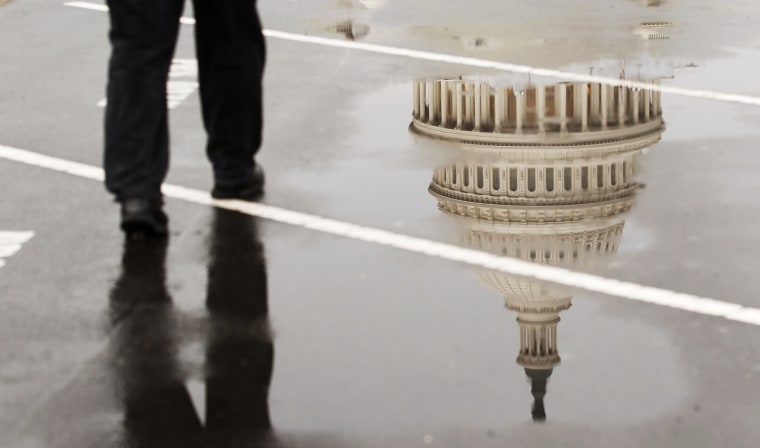While the opioid epidemic has earned a place in the national spotlight in recent years, our understanding of how the crisis went from bad to worse is still coming into focus. To that end, the Washington Post and "60 Minutes" have done some important reporting.
The Post published an amazing piece yesterday explaining that early last year, Congress "effectively stripped the Drug Enforcement Administration of its most potent weapon against large drug companies suspected of spilling prescription narcotics onto the nation's streets." The point of the measure was to "weaken aggressive DEA enforcement efforts against drug distribution companies that were supplying corrupt doctors and pharmacists who peddled narcotics to the black market."
And leading the way on the effort was Tom Marino, a Republican congressman from Pennsylvania, who championed the controversial legislation, which seems tough to defend.
For years, some drug distributors were fined for repeatedly ignoring warnings from the DEA to shut down suspicious sales of hundreds of millions of pills, while they racked up billions of dollars in sales.The new law makes it virtually impossible for the DEA to freeze suspicious narcotic shipments from the companies, according to internal agency and Justice Department documents and an independent assessment by the DEA's chief administrative law judge in a soon-to-be-published law review article. That powerful tool had allowed the agency to immediately prevent drugs from reaching the street.
As the piece explained, the nation's major drug distributors hired a former DEA insider to help formulate a strategy, and then invested in an ambitious lobbying campaign, which included at least $1.5 million in political action committee contributions to the small number of lawmakers who helped advance the issue.
All of this unfolded with almost no scrutiny: "Besides the sponsors and co-sponsors of the bill, few lawmakers knew the true impact the law would have. It sailed through Congress and was passed by unanimous consent, a parliamentary procedure reserved for bills considered to be noncontroversial. The White House was equally unaware of the bill's import when President Barack Obama signed it into law, according to interviews with former senior administration officials."
A separate Washington Post analysis explained that a story like this "shows everything people hate about Washington," complete with a revolving door between the drug industry and those who regulate it, the influence of campaign cash on lawmakers, and Congress failing to do its due diligence on important policy matters.
But as we come to terms with the revelations, pay particular attention to Tom Marino, who championed the controversial bill in the House, following years of related efforts. Given the circumstances, it would seem the Pennsylvania Republican has some explaining to do, though the article added that Marino not only declined repeated requests, his staff ultimately called the Capitol Police when reporters tried to interview the congressman at his office.
It's against this backdrop that Donald Trump has decided to give Marino a promotion -- nominating him to serve as the nation's new drug czar.
